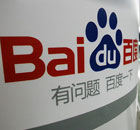Government and Policy
No giving in on renminbi appreciation
By Xin Zhiming (China Daily)
Updated: 2010-03-05 06:44
 |
Large Medium Small |
Beijing should not bow to pressure from other countries, advisors say
BEIJING: Top legislators and advisors defended the country's exchange rate policy on Thursday, saying the government should not buckle under US pressure for a sharp increase in the renminbi.
Sun Zhenyu, China's ambassador to the World Trade Organization, said Washington's demand for currency revaluation is aimed at deflecting attention from its domestic woes.
"It is not right for the US to blame China for its economic problems," Sun, a CPPCC member, told China Daily.
Despite a gradual economic recovery from the global financial crisis, the US is still suffering from a high unemployment rate and uncertain recovery prospects. The Barack Obama administration and the Congress are facing severe pressure from voters to reinvigorate the domestic economy.
The US has imposed a series of trade remedy measures against Chinese products and attacked China's exchange rate policy. In late February, 15 US senators accused China of using its "manipulated" currency as de facto subsidy for its exporters and urged US Commerce Secretary Gary Locke to consider action against Chinese imports.
International investment banks, for example, the US-based Goldman Sachs, are playing up the benefit of quicker and bolder renminbi revaluation.
A "one-off" appreciation of the currency may trigger a rally in stocks and would signal the government's confidence in the domestic and global economies, and its willingness to use market measures to contain inflation, the Wall Street bank said in a research note.
Su Ning, vice-governor of the central bank, said "China would properly deal with the demand for yuan appreciation".
In a monetary policy report released in mid-February, the central bank reiterated the country's long-standing policy stance of keeping the renminbi's value basically stable at a reasonable level while reforming the exchange rate regime "in a pro-active, controllable and gradual manner".
Premier Wen Jiabao vowed late last year that the country would not bow to outside pressure on renminbi revaluation.
The currency has remained largely unchanged against the dollar since July 2008, as the country was hit hard by the global financial crisis. But as the pressure for quicker and faster renminbi appreciation has grown in the past months, many analysts expect it to happen, although they are divided on the timing.
However, Li Ruogu, former vice-governor of the central bank and president of the China Exim Bank, warned that Beijing should not bow to pressure from other countries given the still unstable economic recovery. Although exports are rising, growth prospects remain unclear.
If the US continues its trade protectionism policy, it would also harm its own interests, Li, a CPPCC member, said.












